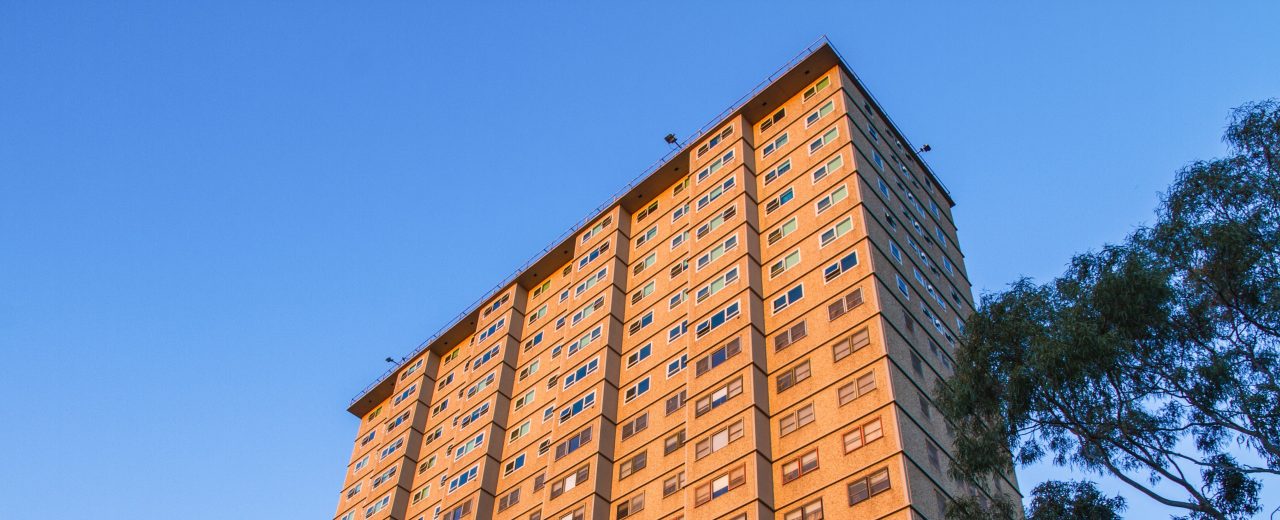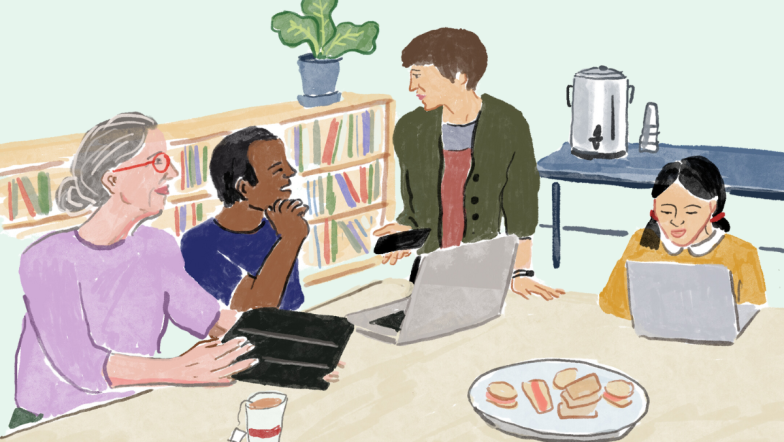Seven ways we can improve mental health outcomes for people experiencing or at risk of homelessness
7 Aug 2019
Last year, 17,772 Victorians who presented at a homelessness services cited mental health as one of the reasons they needed help. People experiencing homelessness have complex and interconnected needs, and mental health issues often play a role. If we want to effectively end homelessness, we need to make mental health a priority.
Every day, we help Victorians who are experiencing or at risk of homelessness. Based on what we’ve learned from our work these are our seven recommendations to better help people experiencing mental illness and homelessness and housing insecurity.
1. Make evictions a last resort option
An eviction notice can have a devastating impact on someone’s mental health. That’s why evictions should only ever be a last resort for someone at risk of homelessness, or someone who has experienced family violence.
In order to improve mental health outcomes for Victorians at risk of homeless, and to protect victim-survivors of family violence, we need fairer laws and policies in place. We recommend abolishing the Notice to Vacate for successive breaches of duty, and making sure that all compliance orders are time-limited and have specific, reasonable wording.
2. Ensure housing security
A safe, stable home is vital for maintaining mental wellbeing and recovery. To people experiencing mental illness who are at risk of homelessness, VCAT procedures and a lack of resources can be confusing and destabilising during an already stressful time. To help in these situations, we need mental health support, and we need tenancy systems to be more accessible.
We recommend sending out information about legal rights and services alongside VCAT notification letters. By giving VCAT jurisdiction to consider the human rights compatibility of eviction decisions by social housing landlords, we can ensure that cases are fairly processed and mental wellbeing appropriately considered. This can also be supported by introducing a Mental Health Liaison Officer at VCAT.
3. Provide suitable, safe and stable social housing
By providing safe and stable social housing, we can help end the cycle that leads to homelessness. We recommend public and community housing in Victoria to be increased by at least 3000 properties each year for the next decade, to help safely house Victorians who are struggling to access or afford the Victorian rental market. Building integrated housing fosters a strong sense of community and helps create a safer environment for all Victorians.
4. Prioritise support services in social housing
Social housing providers have an opportunity to support the human and legal rights of their tenants by developing fairer, more consistent, and publicly available policies.
By training staff members and providing support services, social housing providers can work to holistically help tenants to feel secure and supported. Another priority is extending the reach and number of intensive housing-support services by backing programs with dedicated mental health and legal professionals.
5. Reduce unnecessary and unfair judicial procedures
When mental health, addiction and homelessness are unfairly criminalised, it perpetuates a cycle that is near-impossible to end. The current procedures in place for offences like begging and public drunkenness need to be reassessed. We need to recognise mental health as a significant factor in many people being charged or fined for situations beyond their control.
For people experiencing or at risk of homelessness, and those with mental illness, we recommend a more considered approach to fines and charges, such as referrals to appropriate services, reduced or waived costs, and more guidance and tailored training for first responders.
6. Allow better outcomes for people experiencing mental illness
By providing better outcomes for people at risk of homelessness, we can dramatically improve the impact on their mental health. Therapeutic outcomes and diversion are great alternatives for many people who might otherwise receive a conviction. By making these outcomes available state-wide, the justice system can make the most appropriate decision for each individual.
7. Improve holistic, integrated legal services
Mental health and housing are complex problems that require holistic solutions. Integrated legal and mental health support services are a step in the right direction. To resolve barriers to mental wellness and housing security, we recommend investing in early intervention, client-centred legal services and supporting the integration of legal, social work, health and other community-support professionals. Readily available, integrated services will help people experiencing mental illness, homelessness and housing insecurity to successfully navigate – and exit – the justice system, instead of getting caught in a seemingly endless loop.
For more insight into how we can improve justice outcomes for people experiencing mental illness, read our full submission to the Royal Commission into Victoria’s Mental Health System:


